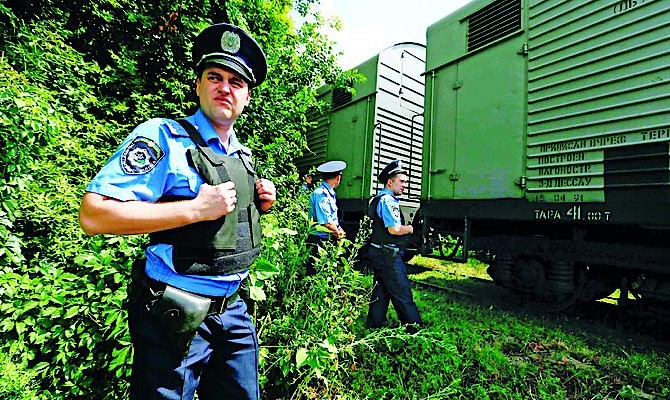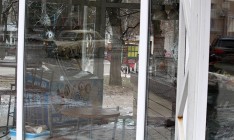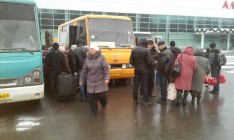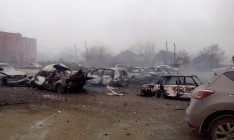Politics
regionsThere is a shortage of police and officials in Donbas territories controlled by the ATO forces

Command of the anti-terrorist operation in the Donbas region has faced a problem of establishing control over the liberated areas. There is not enough manpower for enforcement of the law and no statutory powers to strengthen public authorities.
MIA to deal with officials in the Donbas
Yesterday Minister of Internal Affairs Arsen Avakov said on his Facebook page that territories controlled by the Ukrainian army had no local authorities or police to assist them. He added that the ministry is working on reestablishing the order in the region. For that it needs to replace more than 20,000 deserters and discredited police officers. “How is it possible to maintain control and balance on territories liberated from the militants? The territories filled with arms and weapons and desperate people, who believe in nothing... How shall we respond to the results of polygraph tests of the employees who put on police uniforms after a 3-month break in the Donbas?” wrote Avakov.
The head of Public Relations Department at the MIA in the Donetsk oblast Ihor Dyomin confirmed there were problems with the staff of the internal affairs bodies, but refused to answer the question regarding personnel reserve. “I think it would be incorrect to comment on the minister’s words. We are bringing the order together with the troops,” he said.
Adviser to the Minister of Internal Affairs Anton Herashchenko said in a conversation with Capital that currently the agency faces the challenge of building the work of the departments of internal affairs (DIA) from scratch. He said today the National Guard and volunteer special squadrons of the MIA are used for law enforcement in the liberated cities and soon representatives of the DIAs from other oblasts will be relocated to the region. Herashchenko also said that at present the agency is investigating the actions of local authorities with regard to collaboration with separatists. For example, many Donbas officials are incriminated with Article 110 of the Criminal and Procedural Code, which implies a maximum penalty of 12 years behind bars.
“We are working with local authorities. All officials will be inspected for infringement of the territorial integrity and inviolability of the country,” said Herashchenko, adding that in some cities authorities were not present at all or were under investigation.
Noteworthy is that it is not always possible for Kyiv to change the power in the liberated regions. For example, on July 23 at an extraordinary session of the Slovyansk City Council its deputies refused to dismiss Acting Mayor Oleksandr Samsonov, who had previously been detained on suspicion of collaboration with illegally armed groups.
First Deputy Head of the Presidential Administration Hennadiy Zubko has already predicted a new attempt to replace the Secretary of the City Council through deputies so that the newly elected official is granted the right of signature and ability to manage the budget money.
Outlaw commandants
Adviser to the Acting Chairman of the Luhansk Oblast State Administration Natalya Pshenyanyk said in a conversation with Capital that the situation in the liberated areas could change for the worse if in the foreseeable future no strong vertical of power is established and no local commandant’s offices are created. She added that officials who organized referendums on independence, mass meetings to support them and collaborated with separatists remain in their offices. They have already started to change their party affiliation and are trying to negotiate with Kyiv.
“Today, superintendents and commandants are appointed in the liberated cities, but they do not have the authority to support the cities, as there is no law on their activities. Now they are starting to introduce offices of advisers and assistants to governors to control the situation from Kyiv at least at some level,” says Pshenyanyk. She doubts that local prosecutor offices and courts will be able to objectively assess the activities of officials suspected by the MIA.
Deputy Head of the Parliamentary Committee for the Fight Against Organized Crime and Corruption Mykola Dzhyha (Sovereign European Ukraine) believes the introduction of commandant’s offices would imply the existence of martial law on the territory. “We did not declare martial law during the fights, so why impose it in a peaceful town?” he questions.
Last week the VR failed twice to vote on the bill on creation of commandant’s offices. The document proposed to give the head of the ATO staff the right to appoint commanders in the zone where local authorities cannot exercise their powers. During the first voting the document did not garner the required number of votes and a second voting was never held because the split of the parliamentary coalition was announced.






 of the agreement of syndication with Financial Times Limited are strictly prohibited. Use of materials which refers to France-Presse, Reuters, Interfax-Ukraine, Ukrainian News, UNIAN agencies is strictly prohibited. Materials marked
of the agreement of syndication with Financial Times Limited are strictly prohibited. Use of materials which refers to France-Presse, Reuters, Interfax-Ukraine, Ukrainian News, UNIAN agencies is strictly prohibited. Materials marked  are published as advertisements.
are published as advertisements.